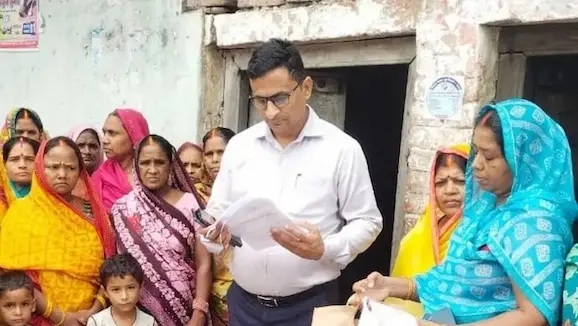
Bihar’s Special Intensive Voter List Revision has ignited a political firestorm
The Revision That Rocked Bihar: What’s Happening?
In June 2025, the Election Commission of India (ECI) launched a Special Intensive Revision (SIR) of Bihar voter list, aiming to purge duplicate entries, verify citizenship, and update electoral rolls ahead of the Assembly elections. While the ECI insists the move is constitutional and transparent, opposition parties are sounding the alarm.
Table of Contents
The revision mandates that voters added after 2003 must submit proof of citizenship, including birth certificates or documents proving their parents’ birthplaces. This has raised concerns that up to 2.93 crore voters roughly 37% of Bihar’s electorate may be forced to re-verify their eligibility.
Critics argue that:
- Many rural and marginalized voters lack formal documentation.
- Aadhaar, ration cards, and voter IDs are not accepted as valid proof.
- The timeline just 30 days is “humanly impossible” for such a massive exercise.
The ECI defends the move, citing the need to remove illegal immigrants and ensure electoral integrity. But the timing just months before the polls has led to accusations of political manipulation.
Constitutional Concerns and Political Fallout
Opposition leaders, including Congress, RJD, and CPI (ML), have called the revision a “Tughlaki Farman”, likening it to demonetization and even the controversial NRC (National Register of Citizens). Congress MP Abhishek Manu Singhvi warned that the move could disenfranchise millions, especially Dalits, backward classes, and migrant workers.
Key concerns include:
- Flood-prone regions and migrant-heavy districts may be hardest hit.
- Only 2.18% of Bihar’s population reportedly possess birth certificates.
- The revision could violate Article 326 of the Constitution, which guarantees universal adult suffrage.
Tejashwi Yadav, Leader of Opposition, questioned the need for such a drastic overhaul:
“If the 2024 voter list was valid for Lok Sabha elections, what changed in one year?”
The INDIA bloc has demanded an all-party meeting with the ECI and warned of mass protests if the revision isn’t halted. Meanwhile, the BJP and its allies defend the process, calling it a step toward transparency and electoral hygiene.
Who Stands to Lose and What’s at Stake?
The fallout from this revision could be seismic. Analysts warn that millions of genuine voters,especially those from poor, rural, and marginalized backgrounds may be excluded due to lack of documentation.
Groups most at risk:
- Migrant workers who live outside Bihar but vote in their native villages.
- Women voters, especially those who’ve changed residence post-marriage.
- Flood-affected communities with limited access to government services.
- Youth voters who turned 18 recently but lack formal birth records.
The ECI has deployed over 98,000 Booth Level Officers (BLOs) and 4 lakh volunteers to assist with the process. But with such a tight deadline, many fear that the revision will disproportionately affect those least equipped to comply.
This isn’t just a bureaucratic exercise, it’s a test of India’s democratic resilience. If millions are stripped of their voting rights, the legitimacy of the upcoming elections could be called into question.
A Democratic Crossroads
Bihar’s voter list revision has become more than a technical update, it’s a symbolic battleground for electoral justice, transparency, and constitutional integrity. While the ECI maintains that the process is lawful and inclusive, the sheer scale, timing, and documentation demands have raised serious concerns.
As the state braces for high-stakes elections, the question remains:
Will this revision strengthen democracy, or fracture it?
Stay updated with the latest news on Rapido Updates. Keep yourself updated with The World, India News, Entertainment, Market, Automobile, Gadgets, Sports, and many more